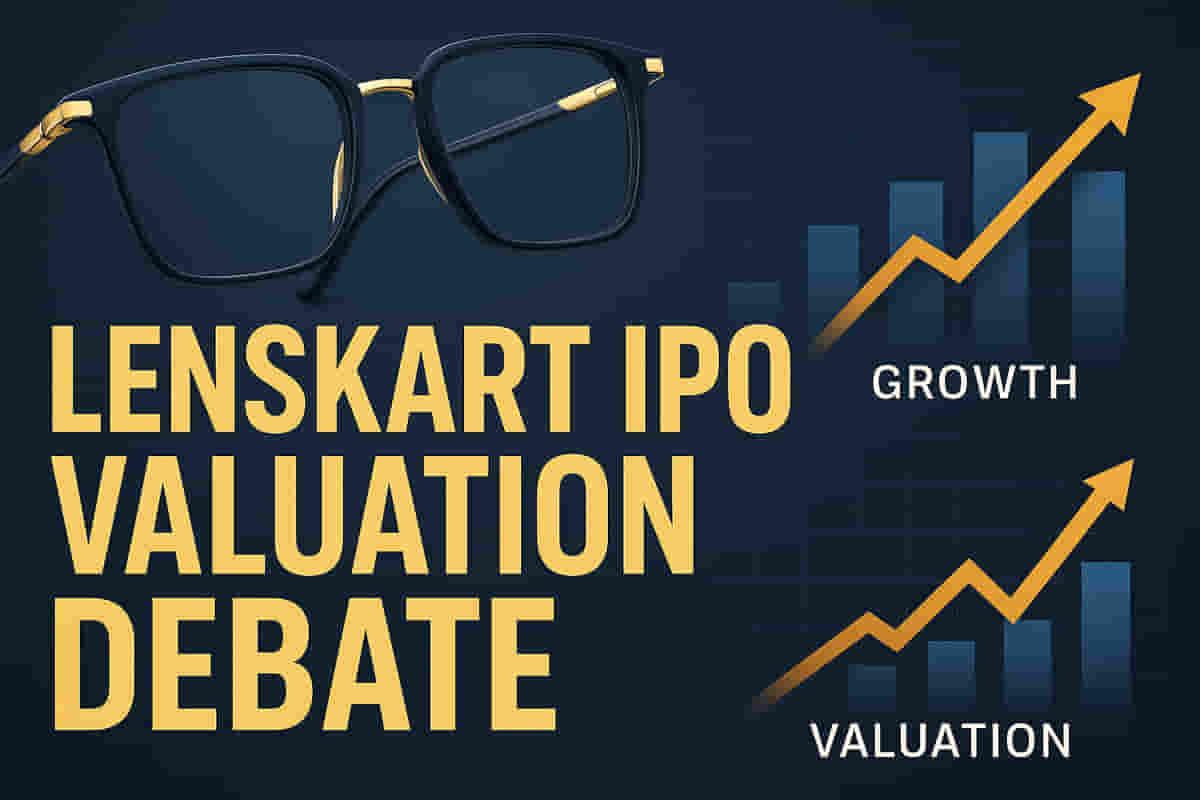Lenskart's INR 70,000 Crore IPO Valuation Faces Intense Investor Scrutiny
Consumer Products
|
30th October 2025, 10:31 PM

▶
Stocks Mentioned :
Short Description :
Detailed Coverage :
Lenskart is preparing for its Initial Public Offering (IPO) with a proposed valuation of INR 70,000 crore. The company boasts a 60% compounded annual growth rate (CAGR), a substantial 40% of revenue from its fast-growing international business, and over 70% gross margins. However, this valuation is under intense scrutiny from investors and analysts.
Critics point to the company's operational losses and recent profits reportedly boosted by non-operational income such as mutual fund gains and interest income. Concerns are also raised about high valuation multiples, including a Price-to-Earnings (P/E) ratio of 225x and a 10x revenue multiple for a retail stock. The debate also covers whether Lenskart is primarily a tech company or a traditional retailer, given its thousands of physical stores and acquisition-driven international expansion.
SBI Securities noted that at the upper IPO band, Lenskart is valued at high FY25 EV/Sales and EV/EBITDA multiples, suggesting a potentially stretched valuation and muted listing gains.
In defence, Lenskart highlights that founder Peyush Bansal's share acquisition was a secondary transaction rewarding key milestones, not a fresh issuance. They argue that high growth with negligible operational losses is typical for tech-driven businesses commanding such valuations. The company's manufacturing and tech-led retail operations are expected to drive overseas sales.
Comparisons are drawn with Nykaa, a listed Indian consumer internet peer with similar revenue and growth rates, which commands a comparable market capitalization. However, experts like Geetanjali Kedia of SP Tulsian Investment Advisor argue that Lenskart, as a manufacturer-cum-retailer, should not be judged solely by EBITDA, and its low single-digit profit margins are not impressive.
Globally, giants like EssilorLuxottica trade at lower multiples. While Lenskart argues its higher valuation is justified by faster growth in emerging markets, the divided opinion suggests potential impacts on IPO demand.
Impact: The intense public scrutiny and debate surrounding Lenskart's IPO valuation could significantly influence investor sentiment, potentially impacting the demand for its shares during the IPO. This situation also sets a precedent and raises questions for other 'new age' or tech-focused companies planning to list in India, possibly leading to more cautious valuation assessments by investors and investment bankers for future IPOs. The comparison with peers like Nykaa and international giants like EssilorLuxottica highlights the challenges in justifying premium valuations in the public market. This debate could lead to muted listing gains for Lenskart if investor skepticism prevails, and affect the overall IPO market for growth-stage companies. Rating: 7/10
Difficult Terms: * Compounded Annual Growth Rate (CAGR): The average annual growth rate of an investment over a specified period of time longer than one year. * EV/Sales (Enterprise Value to Sales): A valuation metric comparing a company's enterprise value to its total revenue. * EV/EBITDA (Enterprise Value to Earnings Before Interest, Taxes, Depreciation, and Amortization): A valuation metric comparing a company's enterprise value to its earnings before interest, taxes, depreciation, and amortization. * IPO (Initial Public Offering): The process by which a private company becomes public by selling shares to the public for the first time. * Pre-IPO funding: Capital raised by a company from investors before it goes public. * Secondary sales transaction: The sale of existing shares by current shareholders to new investors, rather than shares being issued by the company itself. * Non-operational income: Income derived from sources other than the company's core business operations, such as investment gains or interest income. * Price-to-Earnings (P/E) multiple: A valuation ratio of a company's share price to its earnings per share. * Retail stock: A stock that represents a company primarily engaged in selling goods or services directly to consumers. * New economy peers: Companies that operate in sectors benefiting from rapid technological advancements and evolving consumer behavior, often characterized by high growth and innovation. * Vertically integrated: A company that controls multiple stages of its production or distribution process, from raw materials to final sales. * Addressable market: The total revenue opportunity available for a product or service. * Unicorn: A privately held startup company with a valuation of over US$1 billion.